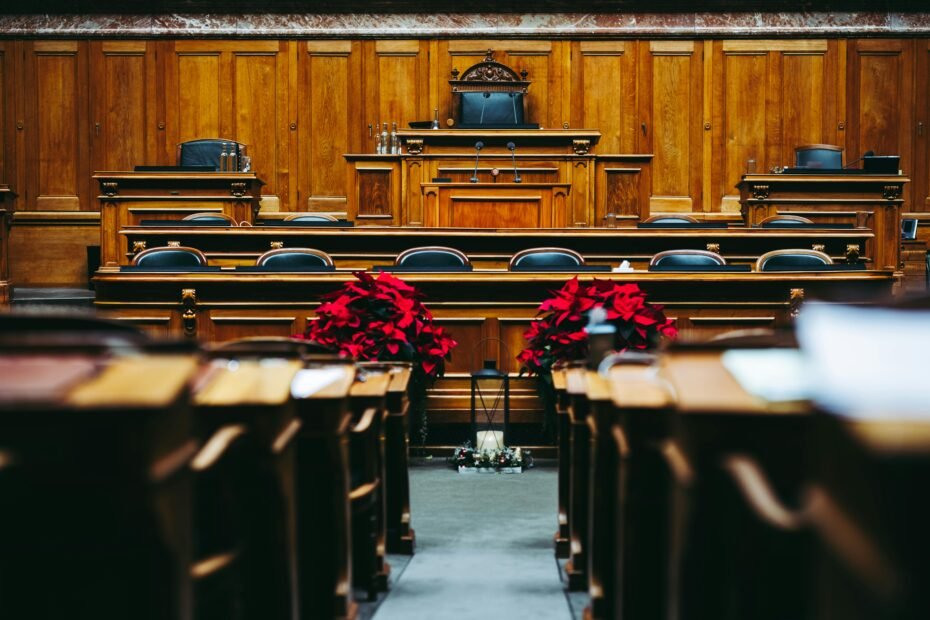Pakistan’s Arbitration Act 2024: A Major Leap Towards Modernized Dispute Resolution
The Arbitration Act of 2024 replaces the outdated Arbitration Act of 1940, ushering in a much-needed modernization of Pakistan’s arbitration landscape. By aligning with international frameworks such as the UNCITRAL Model Law on International Commercial Arbitration, this legislation establishes Pakistan as a more arbitration-friendly jurisdiction.
This reform addresses long-standing issues in Pakistan’s arbitration system, such as:
- Excessive judicial interference.
- Weak institutional arbitration culture.
- Inefficient mechanisms for resolving disputes.
The new law empowers parties with procedural flexibility, ensures minimal court interference, and promotes trust in arbitration as a viable alternative to litigation. By doing so, it strengthens Pakistan’s alignment with global arbitration norms and bolsters international trade and commerce.

Key Features of the Arbitration Act 2024
Enhanced Procedural Autonomy
The Act allows parties to determine procedural details, fostering trust and transparency in arbitration. It also integrates principles from UNCITRAL Model Laws, including:
- Party autonomy in appointing arbitrators.
- Flexible timelines to expedite proceedings.
Institutional Arbitration Over Ad Hoc Mechanisms
The Act encourages institutional arbitration—a shift from traditional ad hoc approaches—by recognizing the role of arbitral institutions in managing disputes efficiently.
Judicial Oversight
While reducing judicial intervention, the Act designates competent courts to assist with arbitration-related matters. This balance prevents unnecessary delays and promotes confidence in the system.
Recognition of Foreign Arbitral Awards
The Act aligns with Pakistan’s obligations under the New York Convention, simplifying the enforcement of foreign arbitral awards in cross-border disputes.
Challenges in Implementation
Despite its progressive framework, several challenges remain:
Judicial Reluctance
Historical judicial overreach, as seen in cases like Sui Southern Gas Co. v Habibullah Coastal Power (2008), highlights the need for judicial training on arbitration principles.
Institutional Weaknesses
Pakistan’s institutional arbitration mechanisms remain underdeveloped. Efforts must focus on building capacity and creating awareness among businesses about structured dispute resolution.
Resistance to Change
Transitioning from ad hoc to institutional arbitration requires extensive stakeholder education and advocacy.
Digital Arbitration
While the Act modernizes arbitration laws, it lacks explicit provisions for digital arbitration mechanisms and online dispute resolution (ODR), which are essential for handling disputes in the digital age.
Comparative Analysis: Pakistan vs. Global Arbitration Hubs
| Aspect | Pakistan (2024 Act) | Singapore | Hong Kong |
|---|---|---|---|
| Judicial Interference | Limited | Minimal | Minimal |
| Recognition of Awards | Aligned with New York Convention | Strong compliance | Strong compliance |
| Digital Arbitration | Emerging | Robust | Robust |
| Digital Arbitration | Limited provisions | Comprehensive | Comprehensive |
Steps for Effective Implementation
To ensure the success of the Arbitration Act 2024, the following measures are critical:
Judicial Training Programs
Educate judges on arbitration principles like the competence-competence doctrine to reduce judicial reluctance.
Capacity Building
Strengthen institutions managing arbitration cases by providing technical training and resources.
Awareness Campaigns
Conduct seminars and workshops to inform businesses about the benefits of institutional arbitration.
Incorporating Digital Arbitration
Introduce amendments to include virtual hearings and electronic submissions, aligning the Act with global trends.
Stakeholder Collaboration
Policymakers must work with international arbitration organizations to ensure continued alignment with global standards.
A Step Forward for Pakistan’s Legal Framework
The Arbitration Act of 2024 is a landmark reform that positions Pakistan as a credible destination for resolving domestic and international disputes. Moreover, with the right implementation strategies—including judicial training, institutional strengthening, and awareness programs—Pakistan can emerge as a hub for arbitration, attracting foreign investment and fostering economic growth.
This Act’s success will not only modernize dispute resolution mechanisms but also enhance Pakistan’s reputation on the global stage.
Reference
i References United Nations Commission on International Trade Law, Model Law on International Commercial Arbitration (1985, amended 2006).
iiRizvi, A., Commercial Arbitration in Pakistan: Law and Practice (Cambridge University Press, 2021). Akhtar, S., “Enforcing Foreign Arbitral Awards in Pakistan,”
iiiInternational Arbitration Review [2023]. Sattar, K., “Challenges in Arbitration Enforcement in Pakistan,”
iv Asian International Arbitration Journal [2022]. Sui Southern Gas Co. v Habibullah Coastal Power (2008) PLD SC 303. Benteke’s, I.,
vInternational Commercial Arbitration: Contemporary Principles and Practices (Oxford University Press, 2020). viBorn, G., International Arbitration: Cases and Materials (Aspen Publishers, 2021).
Also Read Construction Disputes and Arbitration Law in Pakistan
At Anchan Law, we specialize in providing expert legal assistance in arbitration matters for both individuals and businesses. As a premier law firm, we are committed to delivering comprehensive guidance on arbitration law, ensuring our clients navigate legal complexities with confidence. This article is shared to enhance public understanding of arbitration law through our website, anchanlaw.com. While we strive to provide valuable information, please note this content is for general awareness and should not be considered legal advice. For tailored solutions and expert representation in arbitration disputes, contact our experienced lawyers. You can reach us by filling the form.
Let us help you resolve disputes efficiently and effectively through arbitration.
